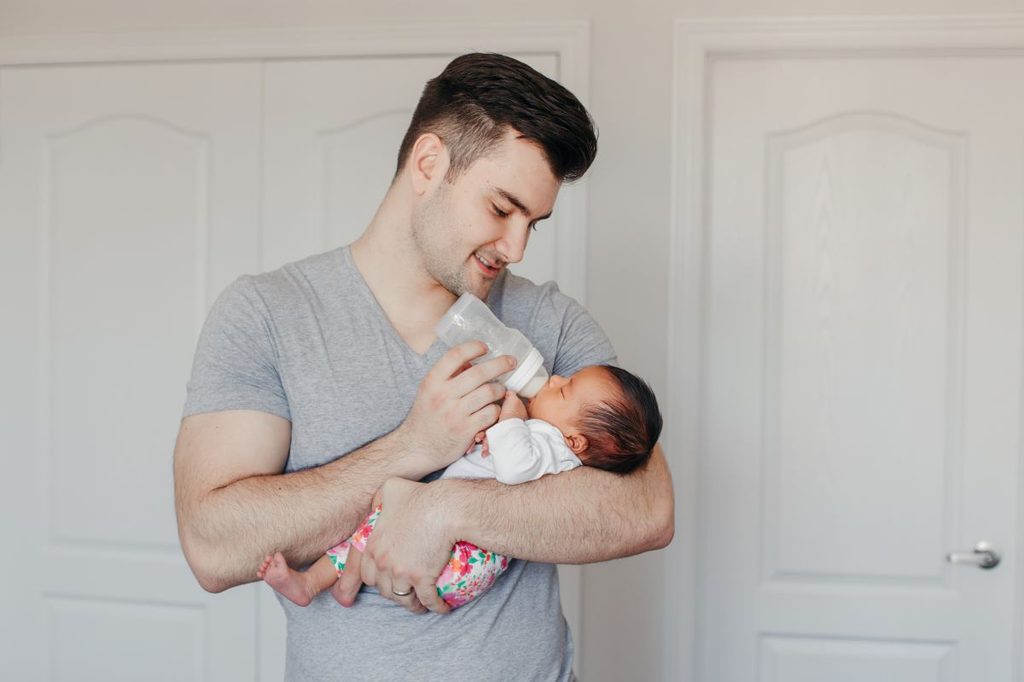When you make the decision to breastfeed, it is a whole journey you and your baby go on together. But as with all stages, breastfeeding, too, will come to an end at some point. It’s better to know the clues and tells your baby will give to be prepared for the newest adventure. If you’re doing baby-led weaning, these are the signs your baby does not want to breastfeed anymore, so you know when it’s time to transition to the next stage of feeding.
Signs to watch for during feedings

The feedings themselves will sprinkle clues your baby is ready to ditch breastfeeding for good. If something feels off about the feeds, start paying attention each time you go to sit down for a session.
Feeding sessions become shorter
You know how long your baby eats at each session. When you notice your baby not wanting to feed for the usual time, you might start to worry they’re not getting enough to eat. But your baby cutting down on the duration of each meal is a clue they might want to stop breastfeeding.
Baby skips feeding sessions
This is more than your baby finally sleeping longer and missing a feeding in the middle of the night. If you notice your baby refusing those additional snack time feedings, they may be telling you they don’t want to breastfeed anymore. Offer a bottle or sippy cup or solid food and see how they react to taking those options. Once the feedings become shorter and then get skipped, your baby has sent strong signals they are over breastfeeding.
Baby gets more distracted during feedings
Babies love to look at everything and check out every sound, but when it comes time to eat, they usually mean business. If your little one is looking around the room, playing with their hands, or generally more interested in what’s going on around them than eating, that is a sign they are done breastfeeding.
Other feeding signs to watch for

When it isn’t feeding time, your baby will still give you hints that breastfeeding just isn’t their thing anymore.
Baby eats more solids
Around 4 to 6 months old, your baby will start eating solids. It’s a process, and it takes time to introduce them to different foods, but it’s such an exciting time for both baby and parent. When your child gets closer to a year old, they should be eating a lot of solid foods, with breastmilk or formula on the back burner. The more food your baby eats, the less they want to breastfeed.
Baby prefers a bottle or sippy cup
Sometimes, it has nothing to do with what your baby is eating outside of breastfeeding; they just don’t want to take the breast anymore. Some kids just like a bottle better. Maybe your child is getting older and likes a sippy cup more. If you notice your child refuses to breastfeed but loves a bottle, they may want to switch delivery methods. It might be hard on a mom who loves to breastfeed, but fed is best, so let your baby eat how they feel most comfortable.
Baby has turned 1 year old
Once a baby has turned a year old, they tend to start to self-wean. Babies younger than a year old don’t usually do that and weaning signs mean something else. Breastfeed for as long as baby wants and you feel comfortable with, but know that the 1-year mark is usually a turning point where the child starts to wean.
When weaning looks like something else

If you notice self-weaning signs but aren’t sure if your baby is sending you mixed signals, there could be something else at play, such as:
- Teething
- Illness or sick
- Growth spurt
- Change in environment
- Change in routine
- Change in milk supply
It’s the same as when your baby won’t sleep like they normally do. If the perfect conditions aren’t met, your little one will say no to doing what you want them to do. Feeding is the same way. A new clue doesn’t always mean your baby is ready to transition away from breastfeeding.
From teething to your baby getting a little cold to trying to feed your baby somewhere new, there are other factors that could mimic your baby being done with breastfeeding. See if your baby has an underlying reason why breastfeeding is hitting a wall before you call it quits.
Once a mom commits to breastfeeding, both she and baby get immersed in the experience and it becomes their way of life. From what mom decides to wear to where they go — breastfeeding goes into every decision. As with all journeys, this one will come to an end, so know the signs your baby does not want to breastfeed anymore, so you are mentally and physically prepared to move on to the next milestone.



